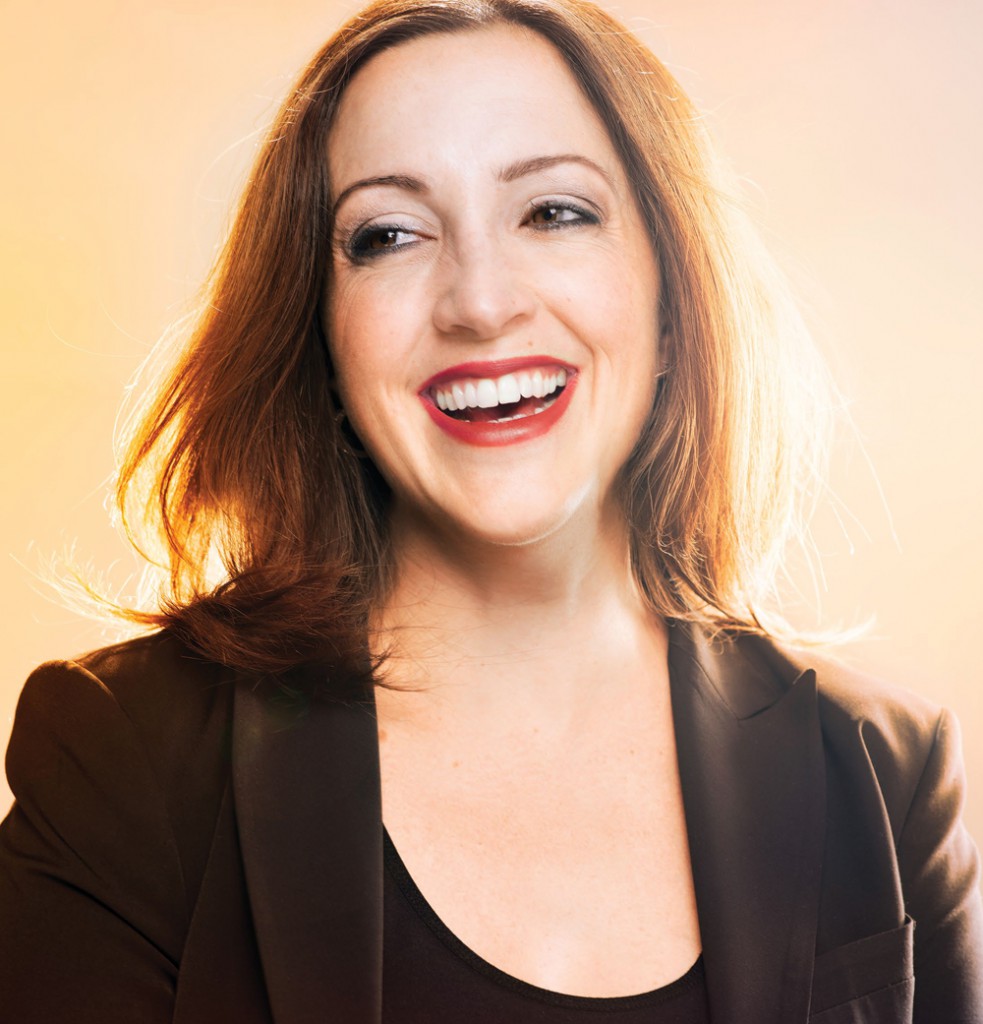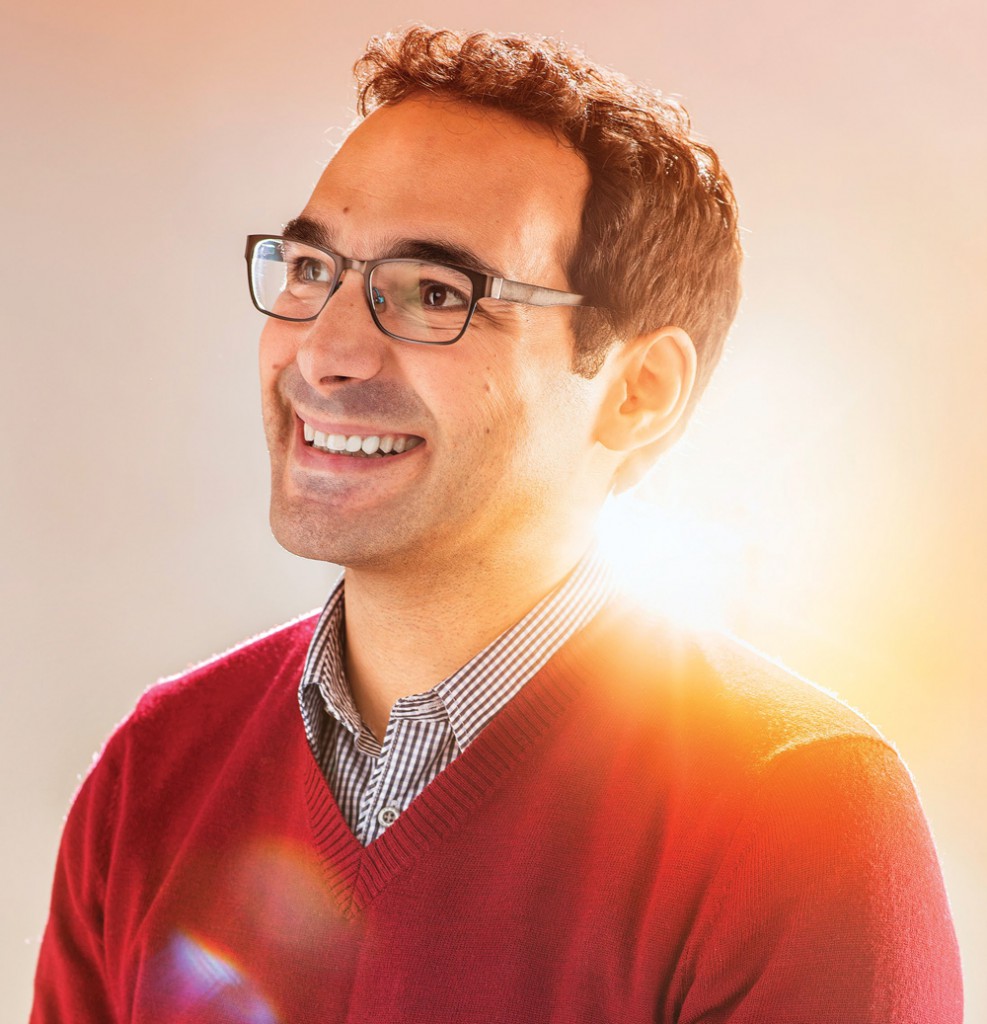Early in 2013, Paul Banwatt had a nagging legal question on his mind. Then an associate at Gilbert’s LLP, an IP boutique, he noticed that the 3D printing fad triggered a multitude of copyright issues. He visited a 3D printer demonstration and noticed several busts of the Star Wars character Yoda. “When I saw that, I thought, ‘People are copying Yoda without George Lucas’s permission.’ ”
With his firm’s blessing, Banwatt started a blog examining the legal repercussions of 3D printing and, in one article, noted the growing number of cease-and-desist letters from rights holders. Not long afterwards, he found himself on a CBC radio program discussing this topic. For another segment on that show, the CBC interviewed Drew Cox, a Toronto art director who had invented a 3D scanner. After listening to each other, the two realized they shared a passion for the emerging field and, within a few months, Cox asked Banwatt to join his fledgling company, Matter and Form Inc., as both a principal and general counsel.
Cox had recently launched a crowdfunding campaign to raise money for a gadget capable of electronically scanning an object, creating a three-dimensional computer graphic that could be fed into a 3D printer. Without a scanner, printers rely on existing 3D models available online. Anyone who wants to print something original — say, a sculpture — needs access to sophisticated computer graphics software, or they’re out of luck.

“It’s my dream job. I’m doing law, but I’m also doing what I love and learning new things every day. Everything comes together in this perfect way.” – Paul Banwatt, GC and COO at Matter and Form Inc.
With prices plunging and demand in the so-called “maker” world exploding, Cox’s invention looked like a bona fide gamechanger. Indeed, the scanner, priced at under $600, was far cheaper than the competition. Almost $500,000 poured in from the campaign, which, in addition to seperate presale orders, yielded an initial run of more than 2,000 devices.
Cox, who lacked large-scale management experience, needed someone to step in as chief operating officer. And Banwatt, recalls Cox, was ready for a change: “Paul wanted to do something bigger and more personal” than work in a law firm. Banwatt, now 33, signed on as employee number four. “After a few months, I realized I wanted to jump in with both feet,” says Banwatt. “I have a very high level of involvement in the business side of things.” His duties include everything from securing the company’s intellectual property to overseeing shipments of the scanner to offshore customers. “In some weeks,” he says, “I don’t touch law.”
A growing number of lawyers like Banwatt are gravitating towards in-house positions at companies where they not only provide legal advice but also perform a wide range of tasks to help them grow. These jack-of-all-trades lawyers often play crucial roles in the lives of their businesses, taking care of everything from lingering lawsuits to personnel issues. And they enjoy that work so much that they’re unlikely to go back to private practice. A 2013 Canadian Corporate Counsel Association survey found that what in-house lawyers love most about their jobs is the variety of work. The vast majority of respondents said they’d be likely or very likely to recommend it as a career path. In fact, when in-house lawyers report a measure of career frustration, it’s because they want to be more involved with their companies’ strategic business decisions. Plus, they often get to work in fields that jibe with their interests outside of the office. All told, lawyers at the ground level of a business have plenty of reasons to be happy.
Not surprisingly, lawyers with smaller companies are often more directly involved on the business end. At Matter and Form, Cox asked Banwatt to look after the nuts-and-bolts operational issues facing the fast-growing company so he could continue developing the product. “I’m not a business guy,” Cox admits. Banwatt, who has an economics degree and a systematic approach to problem solving that is much needed in a rapidly expanding start-up, is the yin to Cox’s yang. “Paul is just naturally good at being the COO.”

“Working in-house where you love the subject matter and love the business is the holy grail. It’s a really good mix of law, business and learning.” – Darlene Tonelli, Founder of Inter Alia Law
When Banwatt started at Matter and Form he worked on the company’s growth plan. After securing $2 million in growth financing from public and private sources, Banwatt now oversees the company’s expansion as it staffs up to handle a deluge of orders from all over the world. Cox points out that Banwatt has to manage the export business, and offer his input on decidedly non-legal decisions, such as whether the company should sell its scanners at a single international price point instead of pricing to prevailing currency and market conditions.
Successful in-house lawyers recognize that their most important task is to help build the business. Just ask Darlene Tonelli, who worked at Universal Music Canada between 2005 and 2012 before starting a solo practice, called Inter Alia Law, supporting a handful of companies as part-time in-house counsel. “If you’re the ‘no’ person, you aren’t a good lawyer for your company. It’s much better to feel like you’re advising the business instead of holding it back.” Indeed, successful in-house lawyers learn to move swiftly to keep pace with the company’s leadership.
And their legal expertise often helps them find creative solutions to business problems. When Tonelli arrived at the music giant in 2005, the company was still grappling with the precipitous revenue fallout from unauthorized downloading — a problem that was legal in nature but demanded a better approach than suing young fans, as the U.S. recording industry had done. Hired to provide just legal advice, she then joined a business development team a year into her job. The group began building new offerings, including a digital radio service. To get that venture off the ground, she had to hammer out a complex rights agreement with collective rights-holder societies and broadcasters — parties with starkly divergent interests from the record label. Finalizing a deal proved to be tough sledding, and ultimately turned on a successful business negotiation. Tonelli made it happen by drawing on her understanding of emerging technologies and her acumen for negotiation. “I felt it was one of those situations where I used all of my skills as a lawyer,” she says.

“I love my job. I’m general counsel at a progressive technology company that’s pushing what’s possible.” – Vincent Luciani, General Counsel at Synaptive Medical Inc.
Still, Banwatt and other in-house lawyers point out that they sometimes miss the rigorous examination of legal issues that all lawyers are trained to do in law school. They love the chaos of building a business, but practising law at a firm can be intellectually stimulating in its own right. “In private practice you might dedicate two to three pages in a letter to advise the client about an important fact as a risk reduction exercise,” observes Vincent Luciani, general counsel for Synaptive Medical Inc. “You simply don’t do that in-house.”
Luciani, who obtained a mechanical engineering degree before going to law school, says a big part of his job is to provide strategic advice on the company’s patent portfolio. Based out of Toronto’s MaRS research centre, Synaptive Medical has developed software that will allow neurosurgeons to navigate tiny surgical tools through the folds of brain tissue as they work to remove tumours. From the beginning of his career, Luciani, with his technical training, gravitated towards patents and other IP-related law. But he farms out the drafting work to patent agents and focuses instead on helping the company’s founders maximize the return on their intellectual property and manage legal spending.
Luciani is quick to point out that as an in-house lawyer in a small company, there’s no way he can concentrate exclusively on high-level legal and business strategy. Indeed, while his education prompted him to build a specialization in IP-related law, Luciani’s early jobs — at a large engineering consulting firm and then a boutique firm specializing in construction liens — allowed him to become something of a generalist. By the time he reached Synaptive, he’d dealt with everything from figuring out if he could legally remove Canada geese nesting in the company parking lot (answer: he couldn’t) to vetting office leases and managing nasty litigation. “You need a full tool kit if you’re the only in-house counsel,” Luciani observes. “It helps if you’ve seen a bit of everything.”

“Every day has its unique challenges. One day, I’m helping the company get out of a lease. Next I’m figuring out how to get Marvel on board with the royalty structure for a new toy line.” – Kalvin Sie, Lawyer at Spin Master
And it also helps if that tool kit contains more than legal experience. When Kalvin Sie worked as an associate at Borden Ladner Gervais LLP, he often skateboarded down Bay Street to work. Long-term, he wanted a career that dovetailed with his own personal interest in gaming, music and boarding. After a short gig with Corus Entertainment, Sie jumped at an opening at Spin Master, a fast-growing children’s entertainment company that develops toys and apps, with a high-ranked kids TV show, Paw Patrol, broadcast on Nickelodeon.
As it turns out, Sie’s in-house position has allowed him to revel in the fun side of working at an interesting company. He works closely with Spin Master’s Los Angeles-based licensing team on contractual issues relating to the company’s relationship with big Hollywood players, such as Disney and Lucasfilm. But he’s also discovered that he’s able to leverage his personal interests in the development of new Spin Master offshoots, such as apps, games and partnerships with the boarding world. “When I went to law school,” he says, “I never thought I could talk about skateboarding and mesh that into doing a deal with board manufacturers like Girl and Chocolate.”
Quite apart from those kinds of fortuitous alignments, many lawyers say that one of the most compelling aspects of taking a job as in-house counsel — especially with a business on a rapid growth trajectory — is the opportunity to help build a company and see it succeed. At Matter and Form, Banwatt says he’s loving the opportunity to take risks, make mistakes and, mainly, build something from scratch. “Honestly,” he muses, “the questions I face on a day-to-day basis are wildly unpredictable, and that’s the fun for me. It’s your win or your loss, not your client’s.”
Photography by Kerry Shaw.
Hair and makeup by Shawna Lee and Vanessa Monteith.


